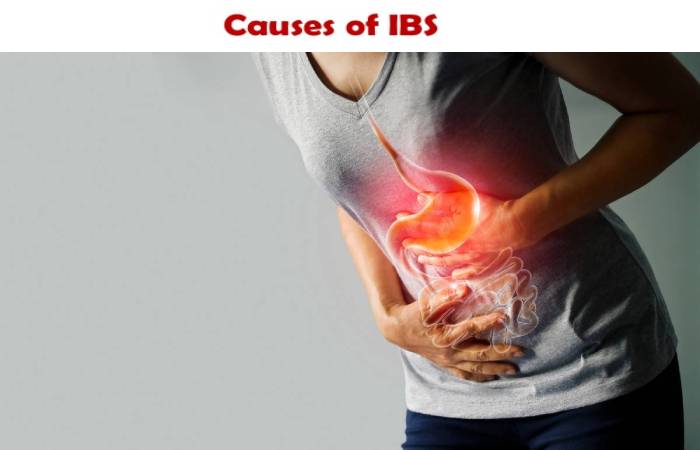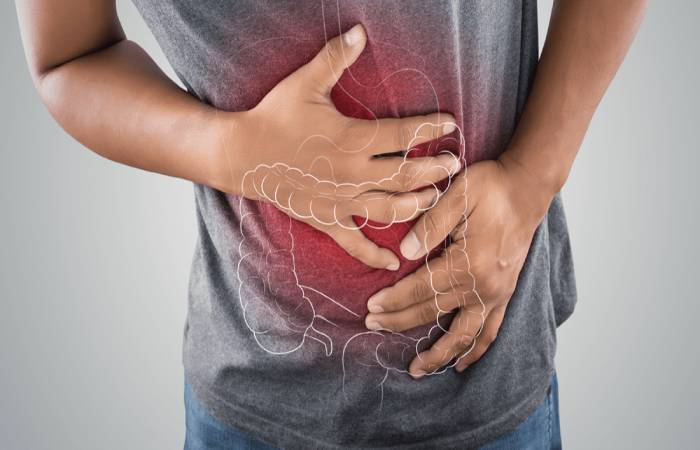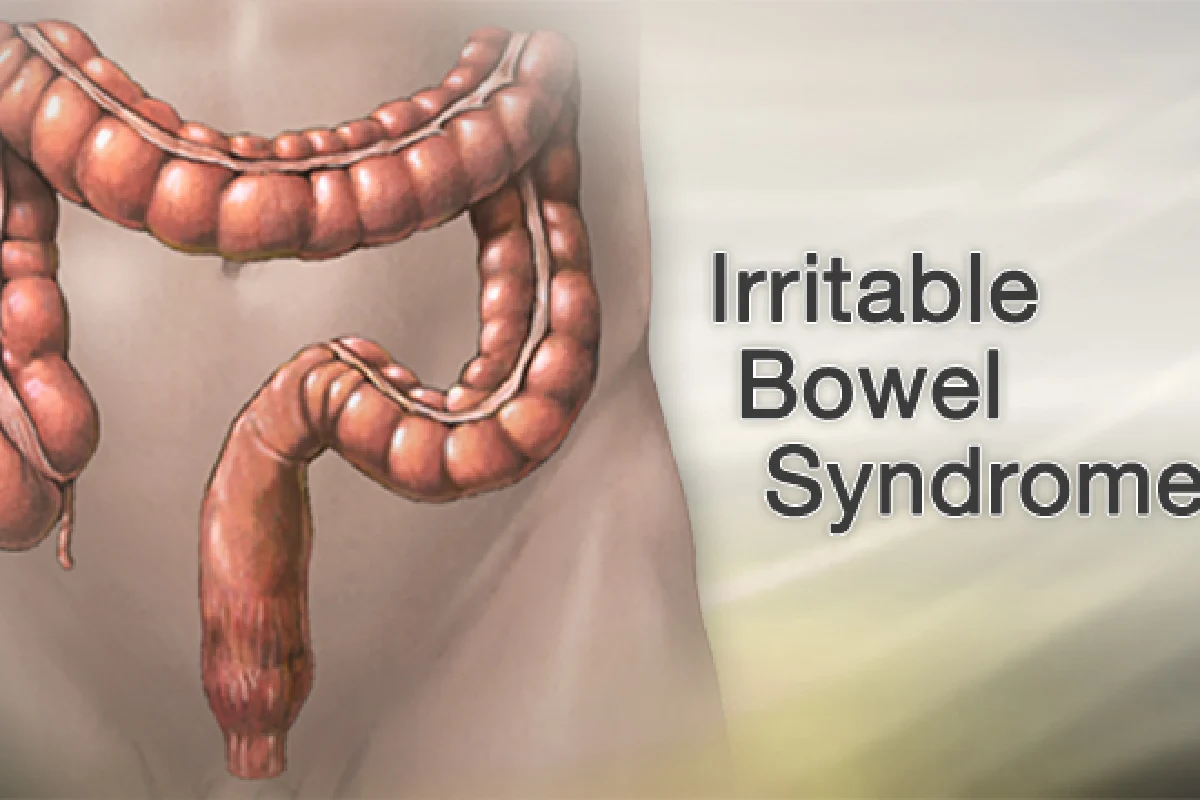Table of Contents
Irritable Bowel Syndrome Definition
Irritable bowel syndrome is a common illness that affects the large intestine. Signs and indications include cramping, abdominal pain, bloating, gas, and diarrhoea or constipation, or both.
And also, it is a chronic disorder that you will need to manage in the long term. Only a small number of persons with irritable bowel syndrome have severe signs and symptoms.
Some people can control symptoms with changes in diet, lifestyle, and stress management. The most severe symptoms can treat with medication and psychological therapy.
Irritable bowel syndrome does not reason changes in intestinal tissue or increase the risk of colorectal cancer.
What are the Symptoms of Irritable Bowel Syndrome?
Its signs and symptoms differ. The most frequent are the following:
- Abdominal pain, cramping, or bloating that is typically partially or wholly relieved by having a bowel movement;
- Excess gas;
- Diarrhoea or constipation; sometimes alternating episodes of diarrhoea and constipation;
- And also, Mucus in the stool.
Most irritable bowel syndrome cases have times when the signs and symptoms are worse and when they get better or even go away completely.
What are the Causes of Irritable Bowel Syndrome?

The careful cause of irritable bowel syndrome is unknown. The factors that appear to contribute are the following:
1. Muscle Contractions in the Intestine
- The intestine walls are lined with layers of muscle that contract as food moves through the digestive tract.
- More muscular contractions that last longer than average can cause gas, bloating, and diarrhoea.
- And also, weak bowel contractions can slow the passage of food, causing the stool to be hard and dry.
2. The Nervous System
- Abnormalities in the digestive system’s nerves can cause more discomfort than average when the abdomen stretch due to gas or stool.
- Poorly coordinated signs between the brain and the gut can cause the body to overreact to changes that usually happen in the digestive process, leading to pain, diarrhoea, or constipation.
3. Intestinal Inflammation
- Some persons with it have a higher number of immune system cells in the gut.
- This immune system reply associate with pain and diarrhoea.
4. Severe Infection
- And also, it can occur after a severe diarrhoea episode (gastroenteritis) caused by bacteria or a virus.
- Irritable bowel syndrome can also associate with an excess of bacteria in the gut (overgrowth of bacteria).
5. Alterations in the Bacteria of the Intestine (Microflora)
- The microflora is the “good” microorganisms that live in the gut and production a key role in maintaining health.
- And also, people with irritable bowel syndrome can vary virtual to the microflora of healthy people.
6. Triggers
Symptoms of irritable bowel syndrome can trigger the following:
Foods
- And also, its role of food allergy or bigotry not fully understand.
- Rarely, a true food allergy causes irritable bowel syndrome.
- However, many people have worse symptoms when consuming certain foods and beverages, such as wheat, dairy products, citrus fruits, beans, cabbage, milk, and soda.
Stress
- Most people with irritable bowel syndrome have signs and symptoms that worsen or are more frequent during periods of increased stress.
- However, while stress can aggravate symptoms, it is not the cause.
Hormones
- Women are double as likely to have it, indicating that hormonal changes play a role.
- Many women find that signs and indications are worse during or near their menstrual periods.
Type of Irritable Bowel Syndrome
For treatment, irritable bowel syndrome can be divided into three types, depending on the symptoms: predominance of constipation, diarrhoea, or mixed type.
Your doctor will likely assess you for other signs or symptoms that may propose a more severe disorder. Some of these signs and symptoms are:
- The appearance of signs and symptoms after age 50;
- Slimming;
- Rectal bleeding;
- And also, Fever;
- Recurring nausea or vomiting;
- Abdominal pain, mostly if not exclusively relieved by a bowel movement, or that happens at night;
- Persistent or waking diarrhoea;
- And also, Anaemia relates to low iron levels.
If you have these symbols or symptoms, or if the initial treatment is not working, you may essential further tests.
Risk Factors of Irritable Bowel Syndrome

Many people suffer from occasional signs and symptoms of irritable bowel syndrome. But they are more likely to have the syndrome if:
Young
- And also, it tends to occur most often in people under 50 years of age.
Female
- In the United States, it is more common in women.
- And also, estrogen therapy before or after menopause is a risk factor for irritable bowel syndrome.
Family History
- Genes can play a role, as can factors shared in the family environment or a combination of genes and the environment.
Mental Health Problem
- Anxiety, depression, and other mental health disorders linked to irritable bowel syndrome.
- And also, a history of sexual, physical, or emotional misuse can be a risk factor.
Complications of Irritable Bowel Syndrome
Chronic diarrhoea or constipation can cause haemorrhoids. And also, irritable bowel syndrome is related to the following:
Poor Quality of Life
- Many people with moderate to severe irritable bowel syndrome report a low quality of life.
- Research indicates that people with it are 3 times more absent from work than people without intestinal symptoms.
Mood Disorders
- Having the signs and symptoms of irritable bowel syndrome can lead to depression or anxiety.
- And also, depression and anxiety can make it worse.
Diagnosis of Irritable Bowel Syndrome
There is no examination to diagnose it definitively. Your doctor will likely twitch with a thorough history, physical examination, and exams to rule out other circumstances. If you have it, you will probably test for gluten intolerance (celiac disease).
After ruling out other conditions, your doctor might use one of the following diagnostic criteria:
1. Rome Criteria
- These criteria contain abdominal pain and discomfort lasting, on average, at least 1 day per week in the past 3 months, related to at least two of the following factors.
- And also, pain and discomfort are associated with defecation. There is an alteration in the frequency of defecation or the stool’s consistency.
2. Manning Criteria
- These criteria focus on pain relief after defecation and incomplete bowel movements, mucus in the stool, and stool consistency changes.
- And also, the more symptoms you have, the more probable you are to develop irritable bowel syndrome.
3. Additional Tests
Your doctor may indorse various tests, including stool tests, to look for infections or problems with the intestine’s skill to absorb nutrients from food (insufficient absorption). You can also do several other tests to rule out other causes of your symptoms.
Imaging Tests may include:
Flexible sigmoidoscopy: The doctor examines the lower part of the colon (sigmoid) with a lighted, flexible tube.
Colonoscopy: The doctor uses a small flexible tube to examine the entire length of the colon.
X–rays or CT scans: These tests produce images of the abdomen and pelvis that may help your doctor rule out other origins of your symptoms, especially if you have abdominal pain. And also, the doctor may fill the large intestine with a liquid (barium) to see any problems more clearly on the x-ray. This barium test sometimes calls a “lower gastrointestinal series.”
Laboratory Tests may include:
Lactose intolerance tests: Lactase is an enzyme necessary to digest the sugar in dairy products. If you don’t produce lactase, you could have problems similar to those caused by irritable bowel syndromes, such as abdominal pain, gas, and diarrhoea. Your doctor may instruct a breath test or ask you to eliminate milk and dairy products from your diet for several weeks.
Breath test for bacteria overgrowth: The breath test can also determine an overgrowth of bacteria in the small intestine. Bacteria overgrowth is more common in people who have had intestinal surgery or have diabetes or other diseases that slow digestion.
Upper endoscopy: A long, flexible tube inserted down the throat into the line connects the mouth to the stomach (oesophagus). And also, using a camera at the end of the box, the doctor inspects the upper digestive tract and obtains a tissue sample (biopsy) from the small intestine and fluid to look for bacteria overgrowth. Your doctor may commend that you have an endoscopy if celiac disease is suspected.
Stool analysis: Your stool may test for bacteria or parasites or a digestive fluid made in the liver (bile acid) if you have chronic diarrhoea.
When to See the Doctor
See your doctor if you have determined changes in bowel habits or other signs or symptoms of it. They can be a sign of more severe diseases, such as colon cancer. These are some of the more severe signs and symptoms:
-
- Slimming;
- Diarrhoea at night;
- Rectal bleeding;
- Iron deficiency anaemia;
- Vomiting for no apparent reason;
- Difficulty to swallow;
- And also, persistent pain that is not relieved by transitory gas or having a bowel movement.
Conclusion
Irritable bowel syndrome tends to occur most often in persons under 50 years of age. If you have it, you will possibly test for gluten intolerance (celiac disease).
It can also be associated with an extra of bacteria in the gut (overgrowth of bacteria).

